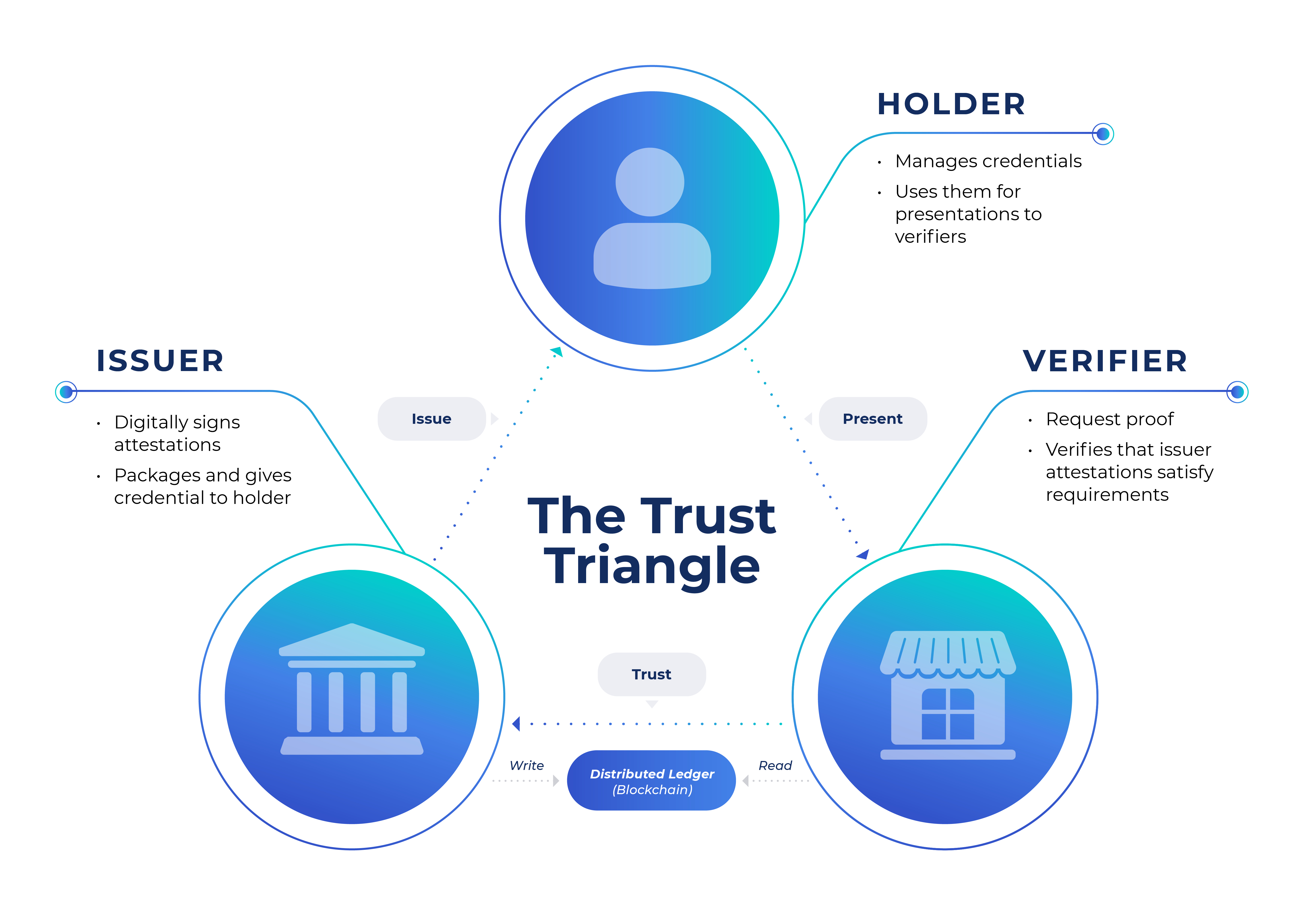July 8, 2022
What is Decentralized Identity?
Decentralized Identity is a trust framework in which identifiers, such as user names and passwords, can be replaced with credentials that are self-owned and enable verification using blockchain and distributed ledger technology. Organizations (know as Issuers) can then issue Verifiable Credentials to individuals (known as Holders) which can be presented and verified by other individuals or organizations (Verifiers) in a seamless and trusted manner.
Why is it important?
As our lives are increasingly linked to apps, devices, and digital services, we are frequently subject to data breaches, privacy loss. In addition, poor user experiences give rise to poor engagement. A standards-based Decentralized Identity framework will provide greater security, privacy and improve user experiences.
How does it work?
The following diagram illustrates how distributed ledger technology can be used as a Verifiable Data Registry to facilitate the participation of three parties in a Verifiable Credentials transaction:

The issuer is an organization that attests to claims and grants digitally signed credentials to the user. For example, a Government is the issuer of a Driver’s License.
The verifier is an organization that requests proof and, upon receipt, verifies that the claims in the credentials satisfy requirements. For example, a store becomes the Verifier upon requesting to see your Driver’s License in order to determine if you are of legal age to buy alcohol.
The user receives and approves the request for credentials obtained from the issuer and presents it to the verifier. The credential claims are cryptographically signed with the user’s private key. For example, the individual who presents their Driver’s License to a store clerk.
